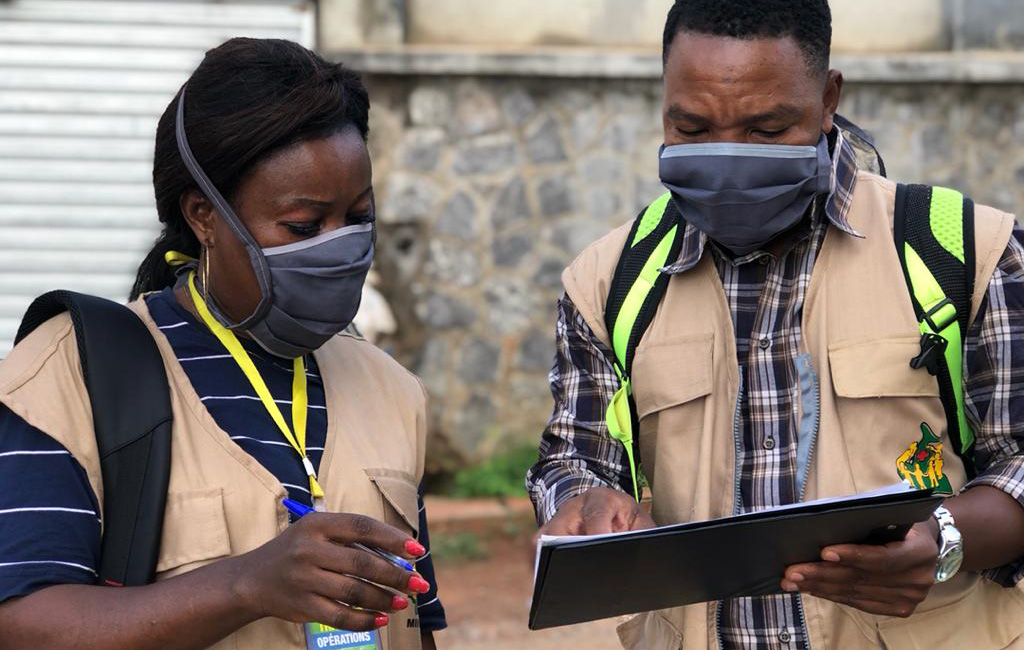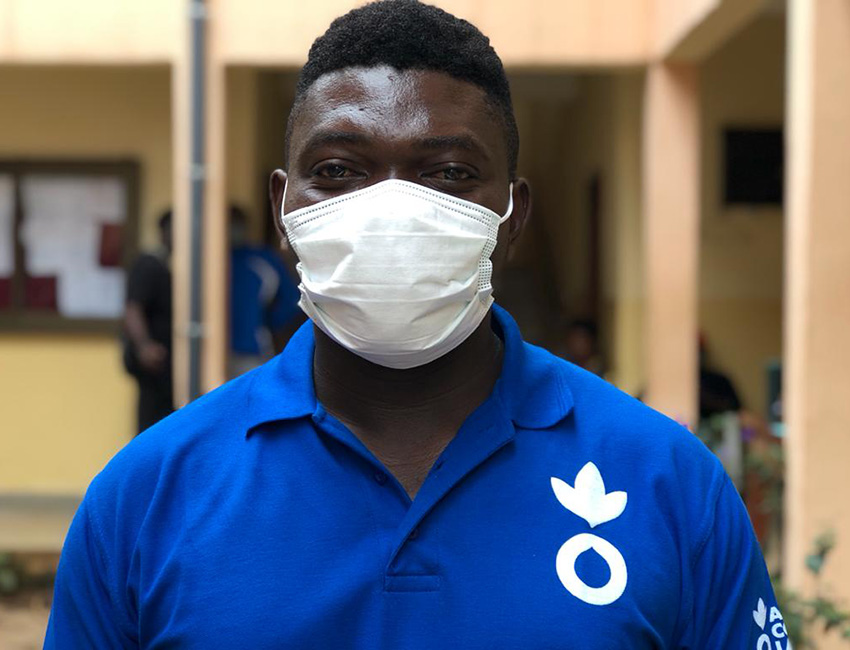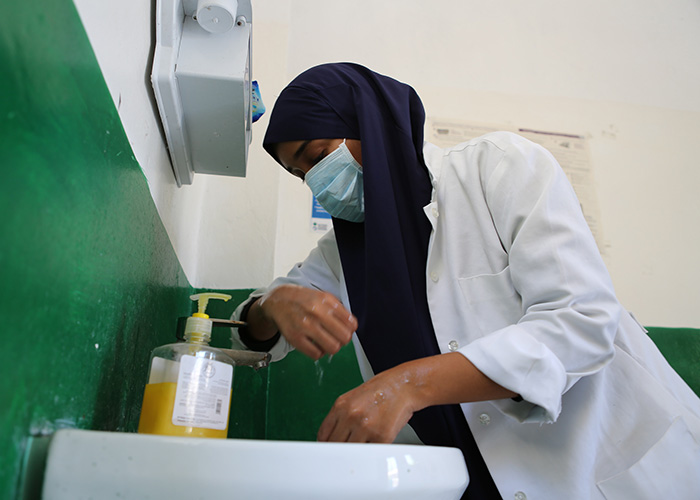Cameroon reported its first case of coronavirus in early March 2020. The number of people infected by the virus had risen in October 2020 to more than 20,000, with more than 420 deaths. The disease has mainly been confined to cities, but there are fears that the virus will spread to vulnerable areas affected by conflict. In the Far North region, where violence has displaced communities living near Lake Chad, just 14.3% of people have access to sanitation facilities.
In response to the virus, 40 Action Against Hunger staff trained to become contact tracers. These teams are carrying out vital work in communities of the capital, Yaoundé.
“The purpose of the investigation here is to retrace the itinerary of the case to draw an exhaustive list of all those who have been in contact with the case,” says Dr Dorine Ngono, a physician-epidemiologist at Cameroon’s Ministry of Health, explaining the importance of contact tracing in the fight to contain Covid-19.

How we’re contact tracing
Anne Forget is an Emergency Coordinator for Action Against Hunger Cameroon, providing technical support to the Ministry of Health. She has deployed six mobile contact tracing teams in Yaoundé.
“When there’s a confirmed case or a suspected case, we send out teams to ask questions about people’s movements over the last 15 days,” she explains. “Where they’ve been, where they’ve eaten, where they’ve worked, who they’ve been in contact with.” Using this list of contacts, the teams establish who is at risk of being contaminated. They then continue to follow these people for fourteen days, asking specific questions about their state of health.
As well as carrying out vital contact tracing work in the country, our teams are also focusing on raising public awareness.
“We will try to set up watch and alert teams at the neighbourhood level,” explains Samuel Feugaing, who oversees Action Against Hunger’s emergency programme in Yaoundé. “They will be able to alert intervention teams at their level if there are sick people or suspicious cases in the community.”
People who are showing Covid-19 symptoms are being referred to health authorities. Depending on their condition, they are then asked to self-isolate, or are transferred to one of the four hospitals in Yaoundé able to treat this disease.
Awareness raising: good hygiene, sanitation and social distancing
As well as all the stringent measures put in place, awareness-raising activities on hygiene and barrier measures are circulating within the communities we work in.
“We must raise awareness of good practices, such as handwashing and distancing,” says Aurélie Carmielle, Action Against Hunger’s Country Director in Cameroon. “Our approach involves communities because we cannot contain an epidemic without shared will.”
The measures implemented in Cameroon will be crucial if the spread of the disease is to be contained. We’re working with the government and frontline staff to respond to the crisis, while continuing to support vulnerable communities who may be driven deeper into a hunger crisis.
How Action Against Hunger is responding to coronavirus
We’re committed to responding to this new health crisis. As well as contact tracing, we’re rapidly scaling up our water, sanitation and hygiene programmes and helping to strengthen healthcare systems in the countries where we work.



